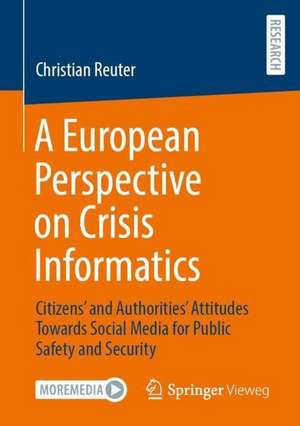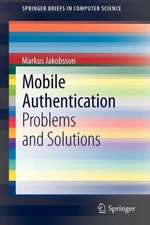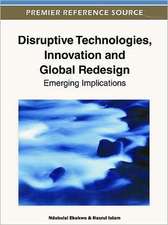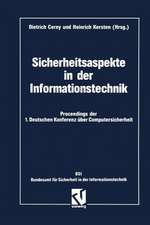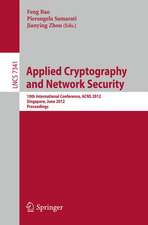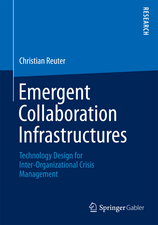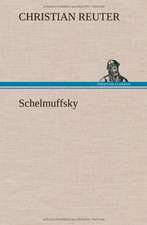A European Perspective on Crisis Informatics: Citizens’ and Authorities’ Attitudes Towards Social Media for Public Safety and Security
Autor Christian Reuteren Limba Engleză Paperback – 13 noi 2022
Preț: 587.94 lei
Preț vechi: 734.93 lei
-20% Nou
Puncte Express: 882
Preț estimativ în valută:
112.52€ • 117.04$ • 92.89£
112.52€ • 117.04$ • 92.89£
Carte tipărită la comandă
Livrare economică 14-28 aprilie
Preluare comenzi: 021 569.72.76
Specificații
ISBN-13: 9783658397197
ISBN-10: 3658397195
Pagini: 281
Ilustrații: XIX, 281 p. 63 illus., 58 illus. in color. Textbook for German language market.
Dimensiuni: 148 x 210 mm
Greutate: 0.4 kg
Ediția:1st ed. 2022
Editura: Springer Fachmedien Wiesbaden
Colecția Springer Vieweg
Locul publicării:Wiesbaden, Germany
ISBN-10: 3658397195
Pagini: 281
Ilustrații: XIX, 281 p. 63 illus., 58 illus. in color. Textbook for German language market.
Dimensiuni: 148 x 210 mm
Greutate: 0.4 kg
Ediția:1st ed. 2022
Editura: Springer Fachmedien Wiesbaden
Colecția Springer Vieweg
Locul publicării:Wiesbaden, Germany
Cuprins
Introduction.- The State of the Art in Crisis Informatics.- Attitudes by Emergency Services Staff in Europe.- Citizens’ Perception of Social Media in Emergencies in Europe.- Tailorable Situation Assessment with Social Media.- Self-Organisation of Digital Volunteers across Social Media.- Discussion and Conclusion.- References.
Notă biografică
About the author
Christian Reuter holds a Ph.D. in Information Systems (University of Siegen) and another Ph.D. in the Politics of Safety and Security (Radboud University Nijmegen) and works as a Professor for Science and Technology for Peace and Security (PEASEC) at Technical University of Darmstadt.
Textul de pe ultima copertă
Mobilising helpers in the event of a flood or letting friends know that you are okay in the event of a terrorist attack – more and more people are using social media in emergency, crisis or disaster situations. Storms, floods, attacks or pandemics (esp. COVID-19) show that citizens use social media to inform themselves or to coordinate. This book presents qualitative and quantitative studies on the attitudes of emergency services and citizens in Europe towards social media in emergencies. Across the individual sub-studies, almost 10,000 people are surveyed including representative studies in the Netherlands, Germany, the UK and Italy. The work empirically shows that social media is increasingly important for emergency services, both for prevention and during crises; that private use of social media is a driving force in shaping opinions for organisational use; and that citizens have high expectations towards authorities, especially monitoring social media is expected, and sometimes responses within one hour. Depending on the risk culture, the data show further differences, e.g. whether the state (Germany) or the individual (Netherlands) is seen as primarily responsible for coping with the situation.
About the author
Christian Reuter holds a Ph.D. in Information Systems (University of Siegen) and another Ph.D. in the Politics of Safety and Security (Radboud University Nijmegen) and works as a Professor for Science and Technology for Peace and Security (PEASEC) at Technical University of Darmstadt.
